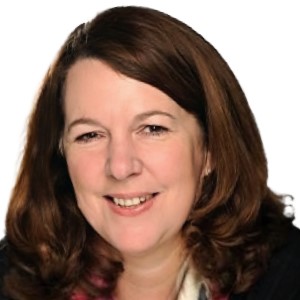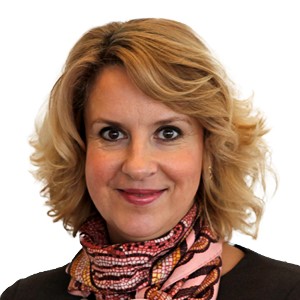Boards today stand on the precipice of unprecedented changes to the workplace, driven by rapid advances in technology — particularly in relation to evolving forms of AI — shifting workforce demographics, changing employee expectations and increasing pressure to build more agile, inclusive and sustainable organisations.
This transformation in the world of work was explored during Criticaleye’s recent Chair and NED Forum, held in partnership with Accenture. Participants highlighted the need for Boards to develop a clear vision for the future of work to effectively support executives in building future-fit organisations.
Nick Tate, Managing Director Talent and Organisation and EMEA Reinvention Lead for Accenture, pulled no punches regarding the scale of the coming changes, in particular concerning humans working alongside agentic technologies. “I think we'll see businesses managing a new human and digital workforce, and that means profound changes for leaders, for how businesses are organised and for talent and skills.” It will require “leaders and Boards to be far more far more liquid, porous and curious in their nature”, he added.
Plenty of progress has been made in recent years when it comes to advancing the people agenda up the list of Board priorities.
Jane Pateman was previously CPO at the former listed waste management group Biffa, before embarking on a portfolio career that has led her to take up a NED position at AIM-listed legal services firm Knights. “What I've seen over the years, both in my exec and non-exec experiences, is an increase in interest in people and culture — driven a lot by shareholder interest and maybe led by a focus on ESG,” she remarked.
This rising interest is also derived from a better understanding of the competitive advantages of people, with Board leaders now regularly asking for data sets relating to people and talent. “We are asking for predictive analysis to understand flight risk, engagement and what are the skills that we need to have in the future,” said
Francesca Ecsery, a NED at Air France and Criticaleye Board Mentor. “This is all data, analysis and insights that the Board is asking for, and that now the CEO needs to produce in the Board pack (via the HR department). This is increasingly [the kind of] information that Boards want to monitor and keep track of.”
This point was reinforced by
Andrew Harvey, Group HRD at FTSE 250 firm Spectris, which is set to be taken into private equity ownership under KKR. “An area that the Board has got more involved in is strategic workforce planning, where we're actually looking in much more detail at the critical skills required (one to five years) within each of the businesses. I.e., looking at the strategic plan, examining where skill and resource gaps could be real constraints to achieving that plan and mapping out the talent solutions required to overcome these challenges.”
These are encouraging signs; however, the extent to which leaders are prepared for the oncoming impact of AI on work patterns, which could in some areas be “a 25 to 40 percent change in what people do today”, according to Nick, is less certain.
Jane said: “In my non-exec role, AI and technology are opportunities and threats to the business. It’s important that you've got the right skill set and understanding of the workforce to move forward. I would still say that Boards spend a bit too much time on ‘the here and now’ and the numbers, and I think that dominates sometimes, rather than thinking about future strategy.
“As a non-exec I think it is incumbent on us to make sure we talk about strategy, the future and the people aspects on every agenda.”
There are many ways in which Boards can upskill in order to have a better grasp of how the world of work is changing. One method that has worked for
Elisabeth Stheeman, Chair of Edinburgh Investment Trust and a Criticaleye Board Mentor, is bringing younger professionals into the Boardroom. “I have been on a technology and innovation Committee for a financial services company, and I found we needed those who really understand what's going on in tech and innovation to add to our knowledge,” she said. “[It’s about] bringing people in who, sometimes in a disruptive way, … bring different points of view and thoughts, especially in areas like AI.”
CPOs at the Helm
In the context of these rapid changes, the CPO is emerging as an integral voice in building the workforce of the future, and is increasingly being seen as a lever for Board members to see what the people strategy looks like now and what it will look like in the mid to long-term future.
“What we're seeing is the CPO being front and centre of driving change,” said Nick. “Firstly, they are reimagining what HR is; moving from a historical corporate service function in an organisation to a business growth enabler. The second is helping the organisation reorganise more profoundly for future growth.
“And what we're seeing is the CPO partnering differently across the organisation —partnering deeply with the CIO, with the CFO and with functional leaders to understand ‘what are these changes that we're seeing?’ I think the place to innovate at the moment is within HR, and where and how people collaborate with AI. It's incredibly exciting to be part of this space.”
While the CPO will play an indispensable role in guiding organisations through the transition to a workplace characterised by high cooperation between humans and agentic technologies, Boards clearly need to be on the journey with them. Any disconnect between a non-exec’s understanding of the current workforce and that of the future will surely render them obsolete.
Jacob Ambrose Willson, Senior Editor, Criticaleye



